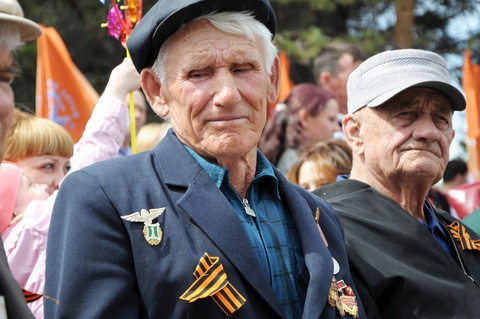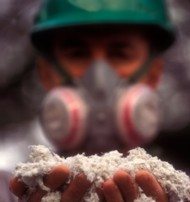Humor Helps Stressed Veteran Mesothelioma Caregivers

Mesothelioma, the asbestos-caused cancer, has a high symptom burden in British military veterans. There is little research on what it is like to live with mesothelioma as a veteran. Or what it is like for veteran mesothelioma caregivers.
New research has been published in the journal of Illness, Crisis & Loss on this topic. The article highlights how veterans and their families cope with the stress of the disease.
Asbestos Exposure in the British Military
Malignant mesothelioma is a disease linked to asbestos exposure. Asbestos exposure in the British Armed Forces has been documented. Many were exposed in damaged buildings during conflict and aid delivery.
Mesothelioma is often diagnosed in older people, and survival rates are poor. Symptoms first appear after a long latency period of 20 to 50 years. There is often a rapid advancement of the disease after late-stage diagnosis. The largest group of military members diagnosed with mesothelioma is veterans.
In advanced disease, symptoms become serious and are often difficult to control. Recent medical advances have provided more treatment options. Yet, it can still be very difficult for the patient and their caregiver. British veterans with asbestos exposure during service can apply for an enhanced pension.
Understanding the Stressed Caregivers
Not much is known about the lived experience of mesothelioma. A new study looked at the mental health of caregivers of veterans with mesothelioma.
Veteran caregivers are 2.5 times more likely than civilians to care for a spouse. And veteran caregivers caring for a veteran were three times more likely to do so.
Virginia Sherborne, from the Health Sciences School, writes that the “Military culture impacted both patients and caregivers.” Many older British veterans can experience social isolation. And veterans may show a greater reluctance to seek medical treatment. This is often due to a strong sense of self-sufficiency and pride.
A veteran’s reluctance to seek help often impacts their family and caregivers. Many patients in the study did not want the caregiver to tell others about their illness. This put a lot of pressure on the caregiver to manage alone. This greatly impacts the caregiver’s health and burden.
Informal caregivers often have elevated levels of depression, anxiety, and traumatic stress. Relationships can become strained between the caregiver and the patient.
Recommending a Sense of Humor
Research recommends a sense of humor. Humor is highly valued in the British Armed Forces. Humor helps soldiers, and military patients, face danger. It also helps to build group bonding and human relationships.
Humor can help with a sense of camaraderie. And it can reduce frustration and help both the patient and their caregiver to reframe stressful situations. But there is a warning. Humor can also create more barriers by masking veterans’ support needs.
Caregivers of veteran patients often went ‘the extra mile.’ But this also included not asking for help when they reached a crisis point. The military aspect of caring for, and caring about, mesothelioma patients is unique. More support is needed for British military veterans and their caregivers.
Source:
Sherborne, Virginia, Angela Tod, and Bethany Taylor. “The Psychological Effects of Mesothelioma in the UK Military Context From the Carer’s Perspective: A Qualitative Study.” Illness, Crisis & Loss (2022): 10541373221122964. https://journals.sagepub.com/doi/abs/10.1177/10541373221122964





